#Ernst Deutsch
Text
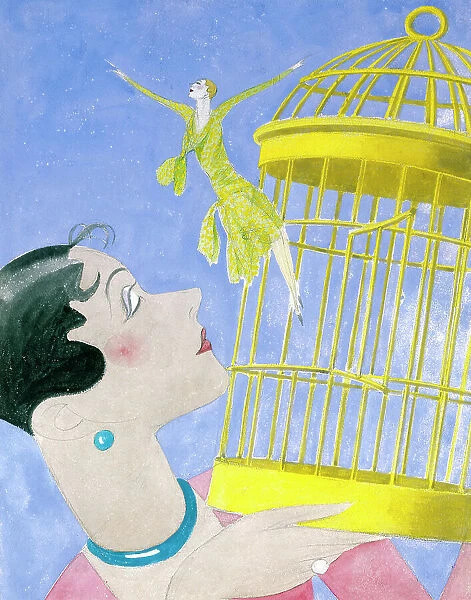
Ernst Deutsch Dryden, Die Dame Magazine Cover, Spring 1928.
The artwork, believed to be a finished piece intended for a Die Dame magazine cover, beautifully captures an allegorical scene of liberation and empowerment. In this thought-provoking image, we see a woman delicately releasing another smaller woman from the confines of a birdcage. Symbolizing freedom and equality, this powerful visual speaks volumes about the struggles faced by women throughout history. The artist skillfully portrays the significance of breaking free from societal constraints in pursuit of personal growth and independence. As we gaze at this photograph, it becomes evident that it serves as both a reflection on past challenges faced by women and an inspiration for future progress. With its timeless message resonating even today, this historical artwork reminds us of the importance of fighting for gender equality. It stands as a testament to the strength and resilience exhibited by countless women who have paved the way for generations to come. "Dryden/Die Dame/7/CAGE" is not just an ordinary print; it represents an era defined by determination and hope. It encapsulates the spirit of those who dared to challenge norms in their quest for justice. (x)
#ernst dryden#illustration#1928#cover#die dame#cover art#political illustration#womens rights#cage#art deco#vintage#art#1920s#1928 illustrations#art deco illustration#die dame cover#ernst deutsch dryden#ernst deutsch#freedom#gender equality#hope#determination#die dame magazine#spring#spring issue#birdcage#the birdcage#release#rights
30 notes
·
View notes
Text
Ernst Deutsch — actor who was supposed to play the somnambulist in "The Cabinet of Dr. Caligari"
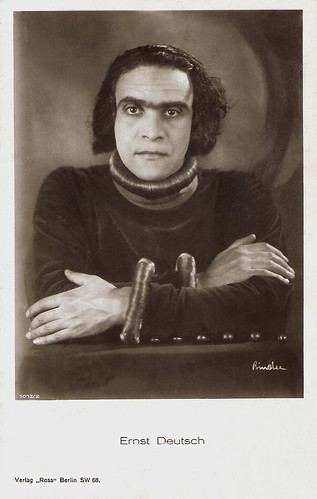
Before Conrad Veidt was cast, screenwriter Hans Janowitz intended the part of Cesare to go to his friend, actor Ernst Deutsch.

In the end, Deutsch did not get to participate in the filming, and the film was created as we know it now, a hundred years later.
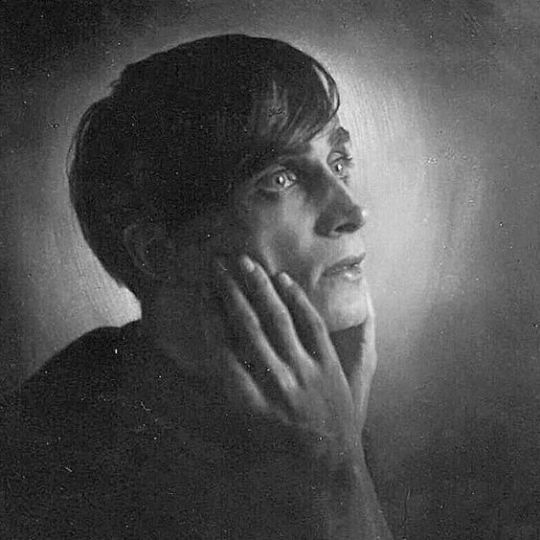
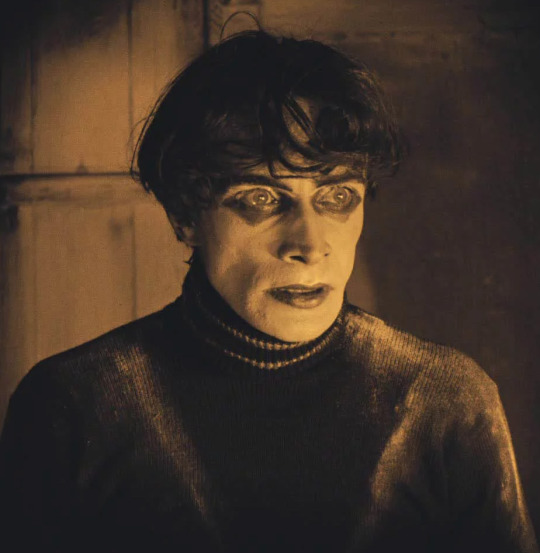
(whispers to the side)
On my own behalf, I will add that in the case with the participation of Deutsch, it is unlikely that Cesare would have made such an impression on me as Cesare performed by Veidt. Conrad was like created for this role. This is my opinion, I do not impose it on anyone!
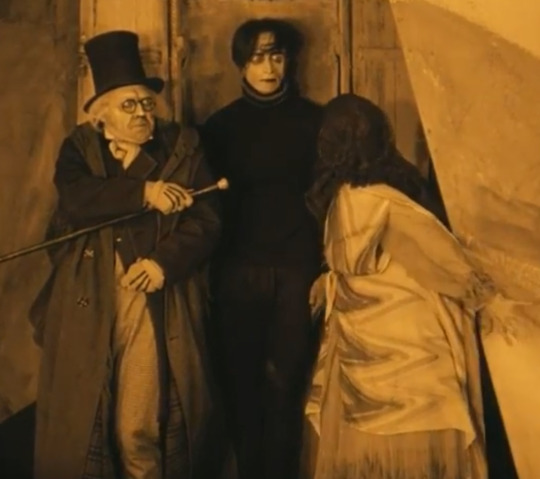
#conrad veidt#the cabinet of doctor caligari#cesare#cesare the somnambulist#Ernst Deutsch#Hans Janowitz#german expressionism#expressionism#the cabinet of dr. caligari 1920
52 notes
·
View notes
Photo
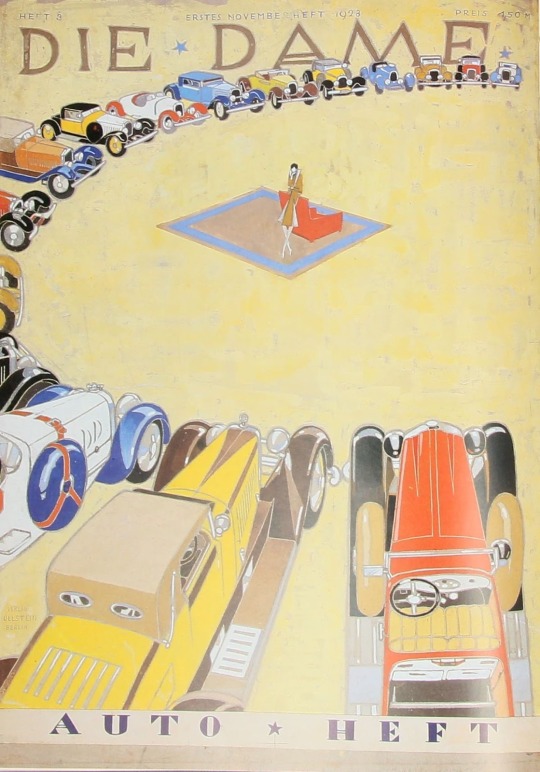
1923 Ernst Dryden aka Ernst Deutsch, Cover illustration for Die Dame Magazine, November 1923.
#1923#illustration#cover illustration#ernst dryden#Ernst Deutsch#ernst deutsch dryden#die dame magazine#die dame#november 1923#1923 illustration#cover art#Auto edition#auto#vintage cars#cars
14 notes
·
View notes
Photo



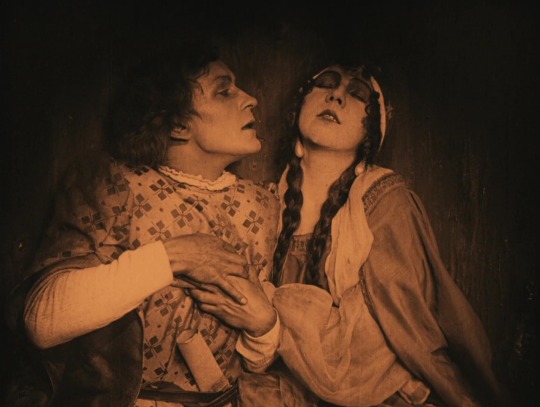
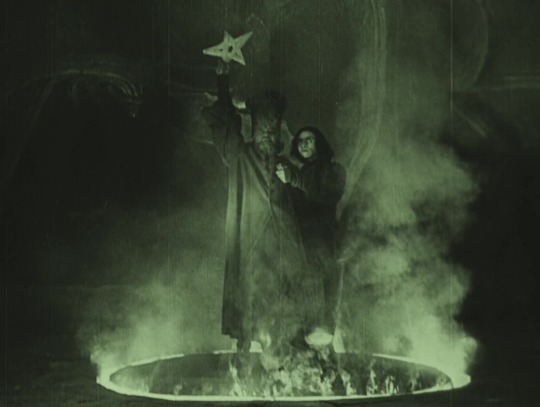
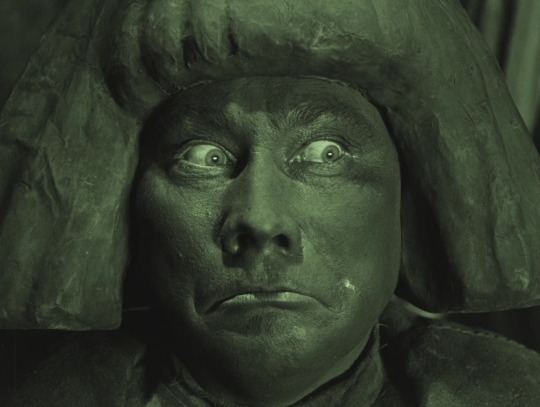
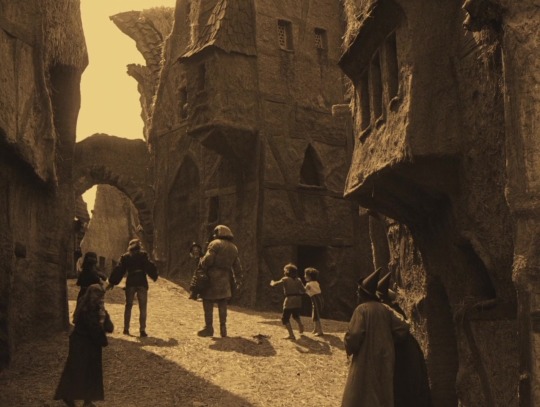
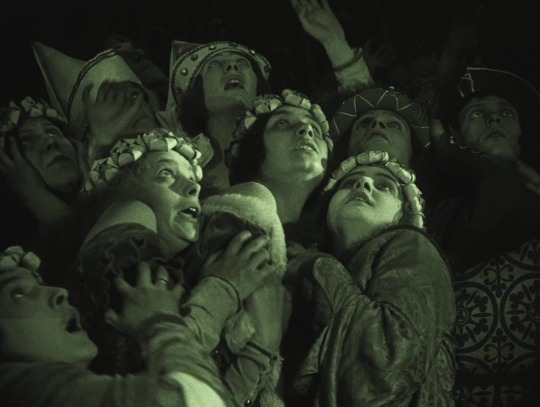
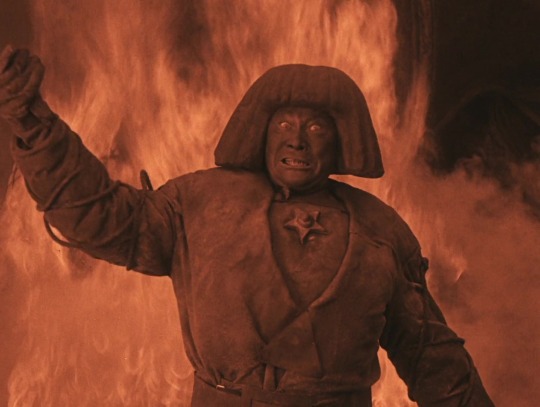
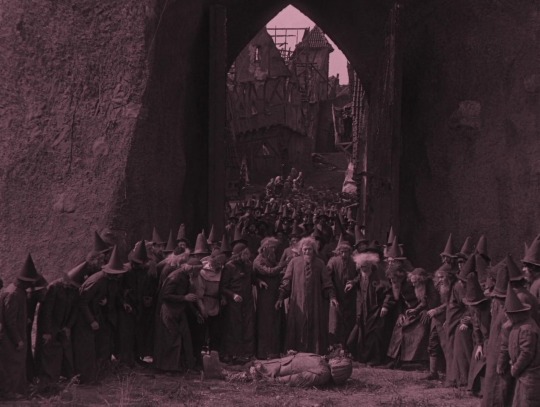
The Golem / Der Golem, wie er in die Welt kam (1920, Paul Wegener, Carl Boese)
Also known as: The Golem: How He Came Into the World
10/29/22
#The Golem#Der Golem wie er in die Welt kam#The Golem: How He Came Into the World#German expressionism#20s#silent#German#Paul Wegener#Albert Steinruck#Ernst Deutsch#Lyda Salmonova#horror#fantasy#16th Century#Prague#golem#Jewish#antisemitism#Bohemia#pogrom#monsters#reanimation#black magic#astrology#rabbis#expressionistic#magic#tinted
29 notes
·
View notes
Text
On January 25, 1950, The Third Man debuted in Milan, Italy.


#the third man#carol reed#graham greene#orson welles#ernst deutsch#cold war film#film noir#40s noir#classic film#movie art#art#drawing#movie history
2 notes
·
View notes
Text
The Golem (1920)
#RHTCinema
#FullFilm The Golem
Plot – In 16th-century Prague, a rabbi creates the Golem – a giant creature made of clay. Using sorcery, he brings the creature to life in order to protect the Jews of Prague from persecution.
Director – Carl Boese, Paul Wegener
Starring – Paul Wegener, Albert Steinrück, Ernst Deutsch
Genre – Horror | Fantasy
Released – 1920

View On WordPress
#Albert Steinrück#black and white cinema#Carl Boese#Early Cinema#Ernst Deutsch#Fantasy#Film Reviews#Horror#Paul Wegener#The Golem
2 notes
·
View notes
Text
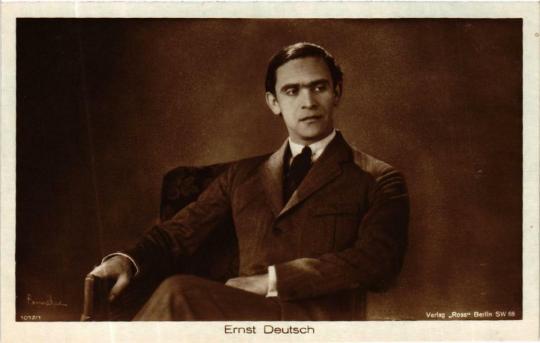
Ernst Deutsch on a vintage postcard
#briefkaart#postkarte#old#ephemera#sepia#postal#ernst#photography#tarjeta#historic#vintage#photo#carte postale#postcard#ernst deutsch#deutsch#ansichtskarte#postkaart
4 notes
·
View notes
Text
BLOGTOBER 10/6/2022 - GOLEMANIA! PT 1: DER GOLEM - HOW HE CAME INTO THE WORLD
For Blogtober 10/6 and 10/7, I examined two films about Jewish mysticism, both made by non-Jews, both long unavailable (or simply not available enough), and both fine examples of the style and visual capabilities of their times.
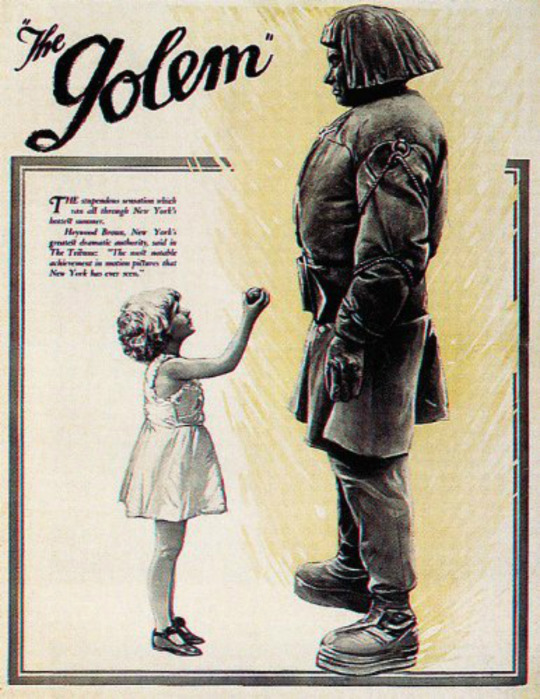
Though THE GOLEM: HOW HE CAME INTO THE WORLD represents an important beat in the development of German expressionist cinema, and any self-respecting nerd has seen plenty of beguiling stills from it, not as many people know it well enough to discuss it on the level that NOSFERATU or THE CABINET OF DR. CALIGARI enjoy. This is surely relatable to availability issues—in fact, the film is part of a trilogy, along with 1915's THE GOLEM and the 1917's THE GOLEM AND THE DANCING GIRL (apparently a primordial example of a horror-comedy!), but these other two are lost to time. The 1920 release, which I'll call DER GOLEM for convenience's sake, is the result of director and star Paul Wegener's desire to update his first effort, which was compromised by a number of disappointing production problems. So, it seems that if we can only have one of his Golem movies, it may as well be this one.
DER GOLEM is the collaboration of writer-director Wegener, his co-writer Henrik Galeen (see also: NOSFERATU), and his co-director Carl Boese, who I assume was especially necessary as Wegener himself plays the title role. The film is adapted from a novel by Austrian author Gustav Myer, which is further based on a Jewish folk tale, and it is interesting to see how this Germanic creative team express their impressions of the history of Jewish persecution. Some critics have found antisemitic underpinnings in the film, largely due to the (delightfully) frightening depiction of the esoteric practice that activates the Golem (which may have a deeper meaning than is immediately apparent), but that would be throwing the baby out with the bathwater. Despite the film being rather brief and broad, it is full of complex, sympathetic characters who transform significantly as the narrative unspools.
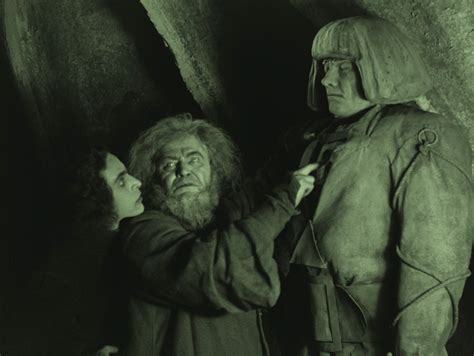
The story takes place in the Jewish ghetto of medieval Prague, where the venerable Rabbi Loew (Albert Steinrück) reads a warning in the stars predicting an imminent danger to his people. Sure enough, an edict comes down from the Holy Roman Emperor (Otto Gebühr) condemning the Jews for their evil character, and ordering their expulsion from the region. Loew creates a hulking clay protector who is brought to life by a sacred word hidden in a star-shaped talisman lodged in his chest, and thinks to impress and entertain the Emperor with his abilities in order to ameliorate the situation. The Golem makes a big splash in the Emperor's court, but the Rabbi's other demonstration doesn't go so well; he implores his audience not to laugh or speak during a magical cinematic projection of the history of the Jewish people, but they can't contain themselves, and the palace begins to crumble. When they are saved by the Golem, the Emperor gratefully rescinds his edict.
Now, this may be enormously crass of me, but I really, deeply think it would be incredibly great if Alamo Drafthouse made one of their pre-show warnings out of this scene. DON'T TALK. DON'T TEXT. OR THE GOLEM WON'T SAVE YOU FROM THE SUPERNATURAL DESTRUCTION OF YOUR EMPIRE.

The other thing I'd like to casually note about this first section, just because it's something I happen to know a little bit about, is that Rabbi Loew's invocation of the goetic demon Astaroth is not really equatable with the idea of devil worship that some viewers have extracted from this—which is fair, because this isn't easy to understand, nor is it readily accessible information. But (and I'm speaking very colloquially here) Astaroth is said to have mastery over esoteric knowledge, and one would work with him in order to gain more occult (for lack of a better word) enlightenment; so, it makes sense that he gives Rabbi Loew the sacred animating word. The other thing about working with demons is that they represent some set of what are usually considered to be negative characteristics: say, slander, wrath, vengeance, etc. So you might work with one of them to deflect these archetypal energies if they are directed at you by someone else. But, you'll also want to be prepared to address these elements in a mature and intelligent way, lest you be overtaken by them yourself. The final effect would be that you've learned an important lesson, and can't be harmed or dominated by whatever malefic characteristic you're dealing with.
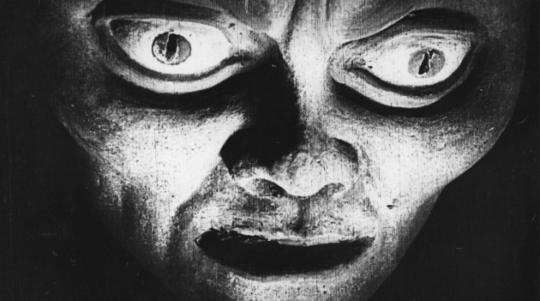
Once the Golem has served its purpose in averting the persecution of the Jews, Loew receives a warning that Astaroth may take it over and use it for vengeful violence. Loew wisely deactivates the creature, but while he goes out to join in communal celebrations, his Assistant makes a big mistake. (The Assistant is played by Ernst Deutsch, a Jewish actor and athlete who I just saw a couple days ago in ISLE OF THE DEAD! I didn't make a note of his wonderful performance as the gently cynical doctor in that film, and now I'm sorry about it) He has fallen in love with the Rabbi's daughter Miriam, and is appalled when he discovers her affair with the Emperor's arrogant squire Florian (Lothar Müthel). The Assistant sets the Golem on Florian, but of course the situation spins out of control, forcing Rabbi Loew to save the community once again.
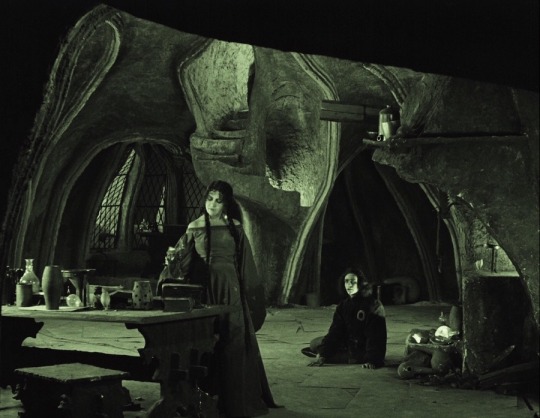
The Golem is an obvious ancestor of Frankenstein's monster, and his misadventure is startlingly similar to that of the better-known creature. Paul Wegener's expressive performance evokes the same range of anger, fear, and naive desire, and his moving interaction with an innocent child is abundantly familiar. In general, DER GOLEM is competitive with FRANKENSTEIN in its emotional complexity; even its villains are tragically human, driven at first by selfish compulsions, but faced with the consequences of their actions, they are sincerely penitent. Even the basics of antisemitism are addressed handily in the film, as the Jews' spartan existence in the ghetto, where their greatest treasures are their traditions and sense of community, flies in the face of the Emperor's accusation that they are avaricious and materialistic. (This coming down from a man bedecked in finery sitting on a gleaming throne, naturally)
The principle gift of DER GOLEM is its advanced aesthetics, owing to the fine work of master cinematographer Karl Freund and architect Hans Poelzig. But the film is bigger than its contributions to film history, telling a sensitive tale that is still surprising in its depth and thoughtfulness. I was glad to see there are new blu ray releases of the film from the last few years, and I'm excited to get my hands on one.
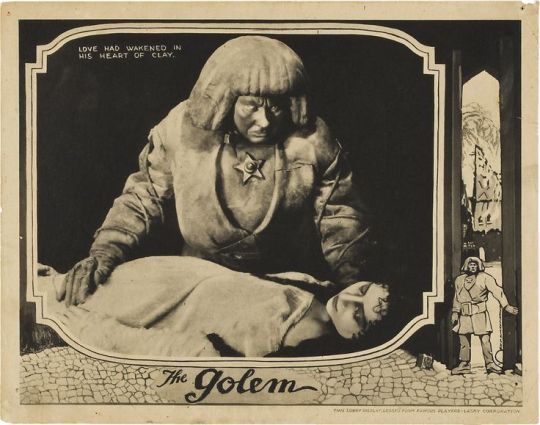
#blogtober#blogtober 2022#golemania#the golem: how he came into the world#der golem: wie er in die Welt kam#paul wegener#carl boese#karl freund#henrik galeen#gustav myer#Albert Steinrück#Otto Gebühr#Ernst Deutsch#Lyda Salmonova#horror#folk horror#german expressionism#hans poelzig#supernatural#occult#esoterism#frankenstein#religion
8 notes
·
View notes
Text
The Third Man (1949) Review
When novelist Holly Martins travels to postwar Vienna he finds himself investigating the mysterious death of an old friend named Harry Lime, who had just happened to offer him a job.
⭐️⭐️⭐️⭐️⭐️
Continue reading The Third Man (1949) Review
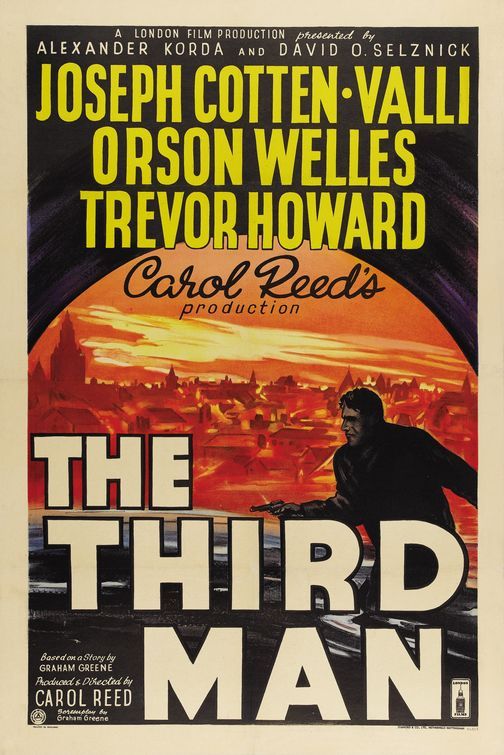
View On WordPress
#1949#Alexander Korda#Alida Valli#BBC iPlayer#Brenard Lee#Carol Reed#Erich Ponto#Ernst Deutsch#Film-Noir#Graham Greene#Harold Ayer#Hedwig Bleibtreu#Joseph Cotten#Martin Boddey#Mystery#Nelly Arno#Orson Welles#Paul Horbiger#Review#Siegfried Breuer#The Third Man#Thriller#Trevor Howard#Wilfrid Hyde-White
0 notes
Text
You are learning German and are at least mildly interested in history?
Let me put you on something:
Ernst H. Gombrichs: Eine kurze Weltgeschichte für junge Leser
The author wrote considering that if you really try, you can explain absolutely everything to a child and specifically does not want his book to be seen as something you have to study (memorize dates and names etc) but as something you should enjoy. At the same time, he hugely respects children ans understands how much they can learn and does not talk down to them but instead uses cool metaphors to explain grand concepts to even the smallest children.
Bad news: I cannot find a free copy/pdf anywhere online, I am sorry (please anyone let me know if you do!)
Good news: There is a professional recording on Spotify!!
Part one: Von den Anfängen bis zum Mittelalter
https://open.spotify.com/album/51QjgeOikJ5jvbuwoqB64U?si=N5rfxmWUR_el0aFkHAMf_g
Part two: Von der Renaissance bis heute
https://open.spotify.com/album/5xe9blTtuxY8TOpNOfnS4t?si=MQVanUmRT52QjUlGOI7q0w
EVEN BETTER NEWS: It is read by Christoph Waltz.
You don't know who that is? Maybe you do, actually. It's one of the austrian-german actors known in the US. For example, he plays the Nazi Hans Landa in Inglorious Basterds, and he's Bond's antagonist in Spectre.
Anywho, Christoph Waltz is a man to behold and his reading of the Kurze Weltgeschichte für junge Leser is absolutely marvelous.
I've loved the audiobook since I was little,
when I got together with my partner I showed it to him and he loved it too,
and we still listen to it to fall asleep in the evening.
I know listening to a book in German as a beginner or even intermediate might be scary but I implore you to try. No one says you can't start over again and again, no one says you have to understand everything. You can simply listen to Waltz's calming voice and be proud everytime you understand a word.
Listening to the book has always been such a magical experience for me and I hope it might be one for you as well.
#german#history#learning german#langblr#deutsch#german learning#language learning#german language#deutsch lernen#Eine kurze Weltgeschichte für junge Leser#Ernst H. Gombrich#christoph waltz#audiobook#Hörspiel#german listening#german resource#foreign languages#language#language learning resource
623 notes
·
View notes
Text
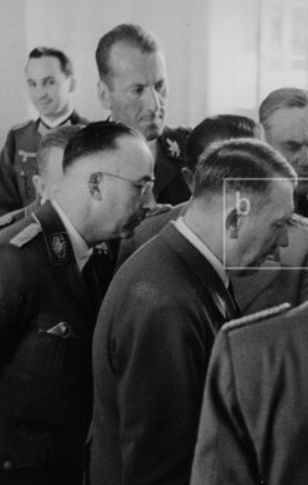
E. Kaltenbrunner with Heinrich Hiimmler and another friends. NOT PROPAGANDA
36 notes
·
View notes
Text
От рассвета до полуночи
А вот и тот самый фильм, из-за которого Эрнст Дойч не смог сыграть сомнамбулу Чезаре в "Кабинете доктора Калигари": в паре с Эрной Морена они сыграли здесь банковского кассира и клиентку банка.
Фильм с русскими интертитрами.
youtube
From Morn to Midnight / Von morgens bis mitternachts
This is the same film that prevented Ernst Deutsch from playing Cesare the somnambulist in "The Cabinet of Dr. Caligari": paired with Erna Morena, they played a bank teller and a bank client here.
Film with Russian intertitles.
#german expressionism#expressionism#silent cinema#silent film#silent era#erna morena#ernst deutsch#Youtube
10 notes
·
View notes
Photo
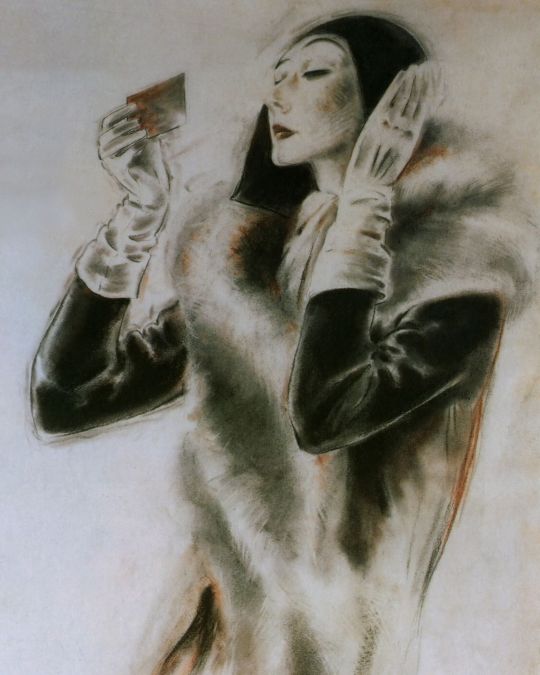
Ernst Deutsch Dryden, Cover for Die Dame Magazine, November issue, 1929
#1929#illustration#ernest dryden#the lady#november 1929#november issue#art deco#dryden#20s illustrations#the lady magazine#ernst deutsch#die dame#weimar#weimar era#berlin#weimar republic#weimar art#die dame magazine#cover#cover illustration#ernst deutsch-dryden#cover art#1929 illustrations
12 notes
·
View notes
Text

The Class E11 was the first electric locomotive class built in the GDR, with production starting in 1961. Pictured here is 211 001-3 in the Deutsche Bahn Museum in Nuremberg.
The factory where it was built carried the name of Hans Beimler, who among other things served as a political officer in the famous Thälmann-Batallion for the International Brigades in the spanish civil war, where he was killed in action. In his earlier life he was working in a locomotive factory in Nuremberg, where he was part of the works council. His Grandson (also called Hans Beimler) lives in the USA and most notably wrote for Star Trek TNG.
@valtionrautatiet-official
@punalippulaiva
@femboytrain
#E11#public transit#deutsche bahn#deutsche reichsbahn#Hans Beimler#nürnberg#nuremberg#Thälmann#wählt thälmann#ernst thälmann#locomotive#trains#analog photography#ФЭД2#FED 2#feliks appreciation post#washi D#500 ISO#star trek#TNG
20 notes
·
View notes
Text
On January 26, 2002 The Third Man was screened at the Febio Film Festival.


#the third man 1949#the third man#carol reed#graham greene#ernst deutsch#orson welles#film noir movies#noir film#film noir#40s noir#cold war thriller#crime thriller#mystery film#mystery thriller#expressionist film#movie art#art#drawing#movie history#pop art#modern art#pop surrealism#cult movies#portrait#cult film
3 notes
·
View notes
Text






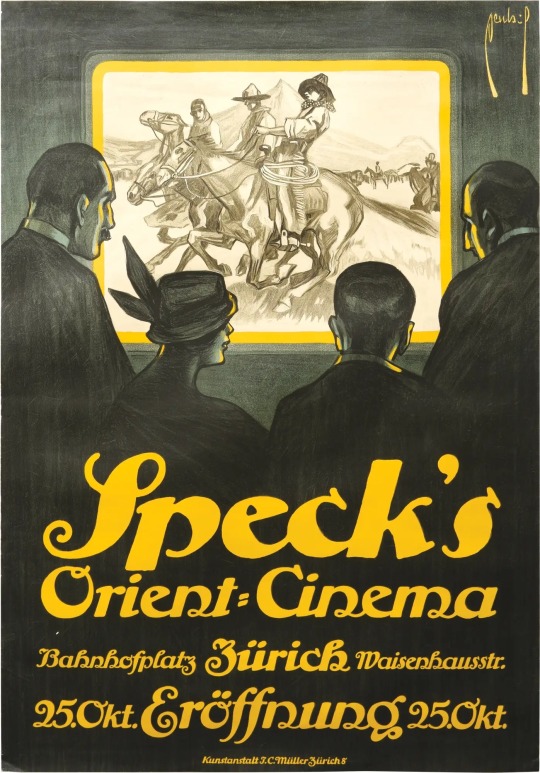

Ernst Deutsch-Dryden (1887-1938)
10 notes
·
View notes